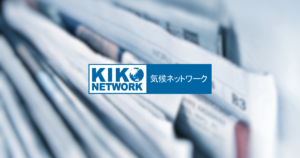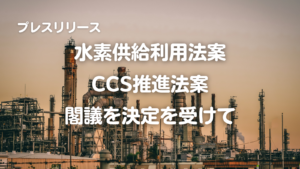December 25, 2023
Kiko Network
Mie Asaoka, President
The 28th Conference of the Parties (COP28) to the UN Framework Convention on Climate Change (UNFCCC) in Dubai, United Arab Emirates, finished on December 13 with an agreement to “transition away from fossil fuels”. This agreement clearly states that greenhouse gas (GHG) emissions must be significantly reduced by 43% by 2030 and 60% by 2035 compared to 2019 levels in order to limit the global temperature increase to 1.5°C and achieve net zero by 2050. It also includes a pledge to triple the world's renewable energy capacity by 2030. To fulfill its fair share in achieving these goals, Japan should substantially reduce GHG emissions in the power sector - which accounts for approximately 40% of energy-derived CO2 emissions - by 2030, and dramatically increase its renewable energy capacity. However, advertisements run daily full of information that misleads electricity consumers, rather than provide the accurate information they need in order to choose electricity that can avoid the climate crisis and is sustainable and available at a reasonable price.
Statements and claims in advertisements must be factual and well-founded. Kansai Electric Power Company, Incorporated (KEPCO) and Electric Power Development Co., Ltd. (J-POWER), two of Japan's leading electric power companies, run various advertisements claiming that ammonia/hydrogen fuel and nuclear power generation are “power generated by zero-CO2 emission fuel” or “CO2-free hydrogen power generation”. However, these claims are not based on facts nor supported by evidence; this electricity is not produced by zero-CO2 emission fuels or CO2-free hydrogen as they indicate in their advertisements, and it does not contribute to achieving the global 1.5°C target. Their advertisements suggest that this power generation leads to a “brighter future”, but it is misleading consumers, and therefore these advertisements should not be shown.
On October 5, Kiko Network, together with the Japan Environmental Lawyers Federation (JELF), filed a petition to the Japan Advertising Review Organization (JARO), which strives to ensure fair advertising and labeling practices and to improve such practices in terms of their quality, requesting a recommendation for JERA to cease its misleading advertisements. On December 25, we have additionally filed petitions for Kanden and J-Power to suspend similar greenwashing advertisements.
Additionally, Kiko Network has submitted a recommendation for JARO to function as a public interest advertising review organization. The recommendation includes the review procedures response systems it should have in place, as well as the disclosure of submitted cases and review results on its website.
As the urgency to strengthen climate change measures increases, awareness is growing throughout the world of greenwashing in corporate advertising, labeling and financing (green bonds) and monitoring of their activities is increasing as well. In order for consumers to choose appropriate products (in this case, electricity) and contribute to averting the climate crisis through their consumption behavior, JARO is expected to fulfill its role by reviewing our requests, together with our previous request submitted in October regarding JERA’s advertisements, and taking immediate action to suspend these misleading advertisements.
References
- Full text of a petition for requesting to stop misleading advertisements by Kansai Electric Power Company, Incorporated (KEPCO) (written in Japanese PDF, summary in English PDF)
- Full text of a petition for requesting to stop misleading advertisements by Electric Power Development Co., Ltd. (J-POWER) (full paper written in Japanese PDF, summary in English PDF)
- Recommendation to JARO (written in Japanese PDF)


